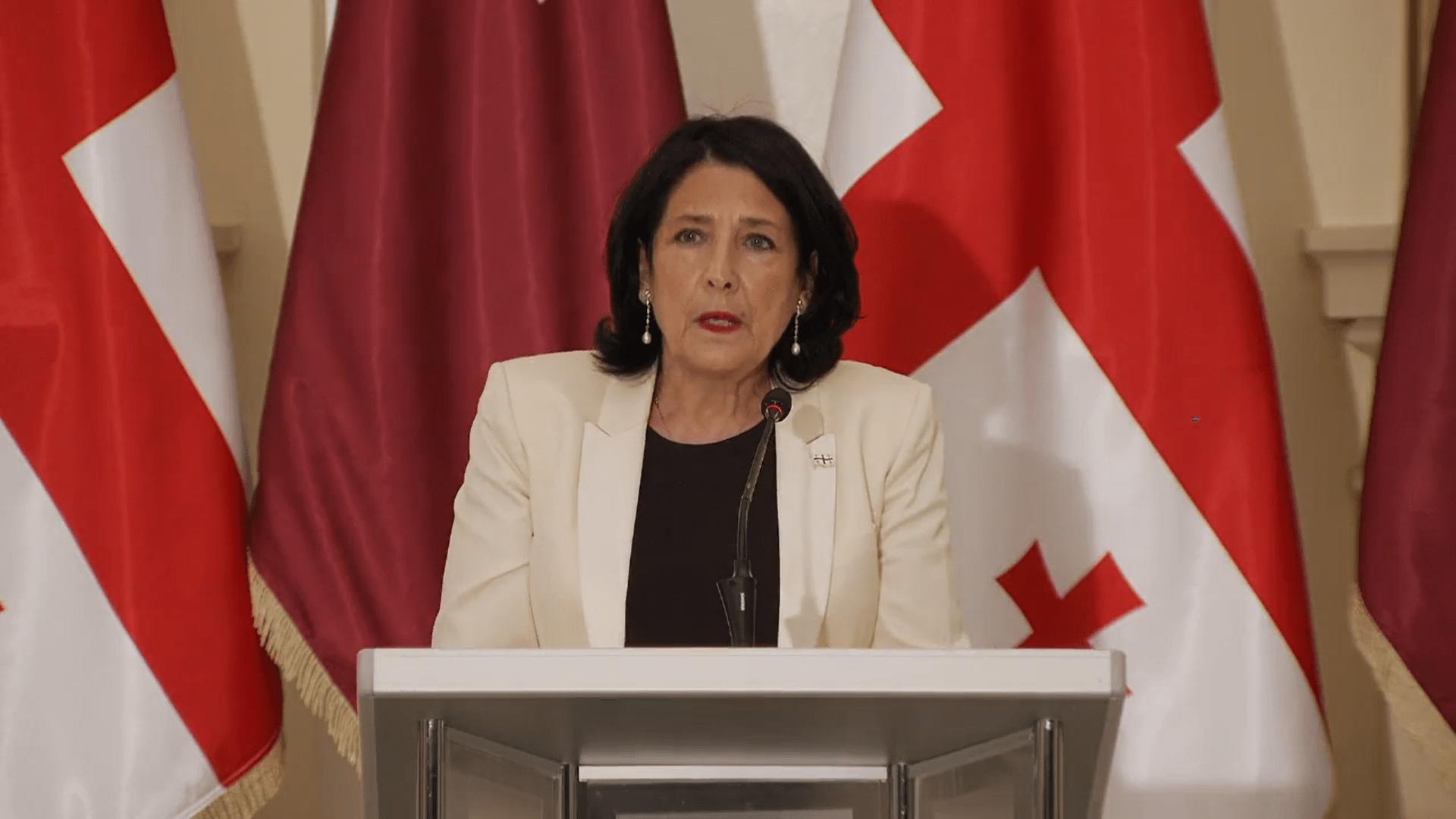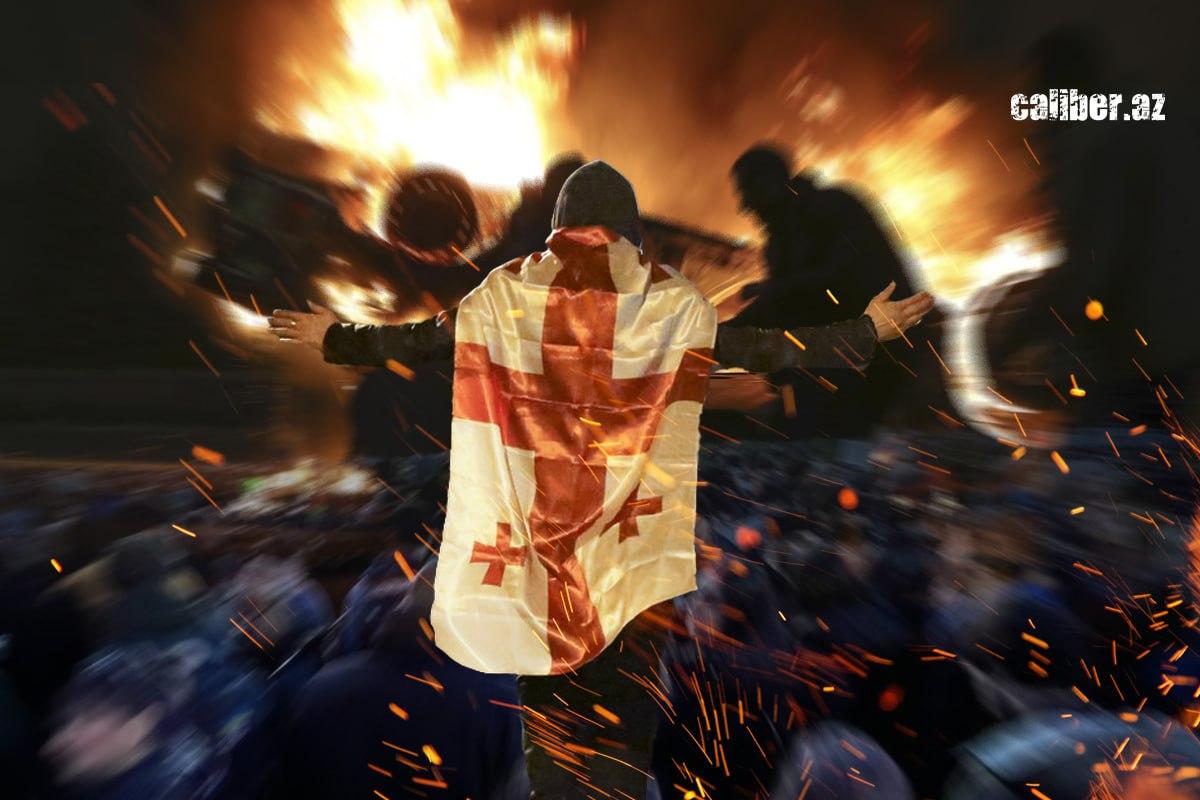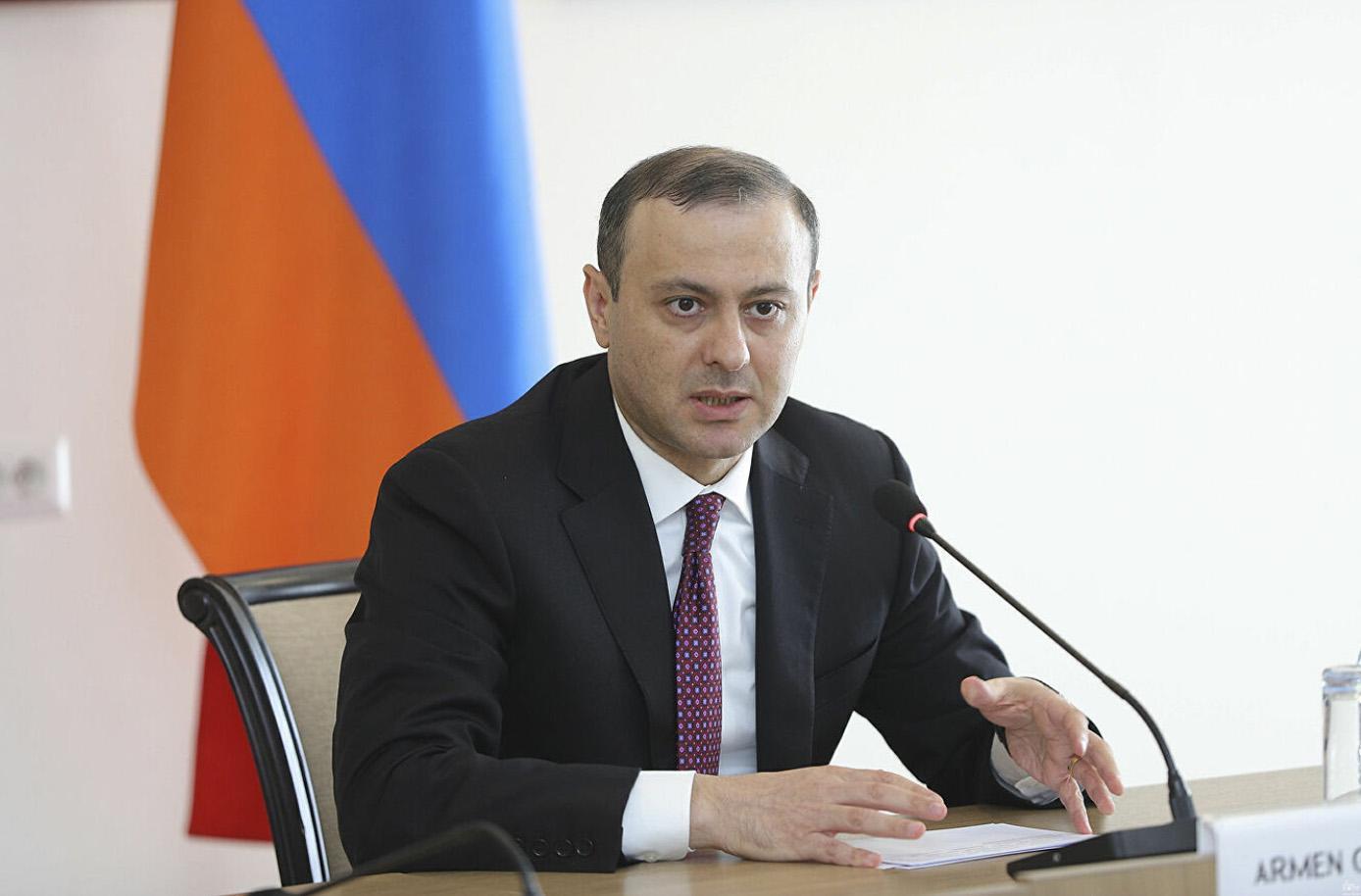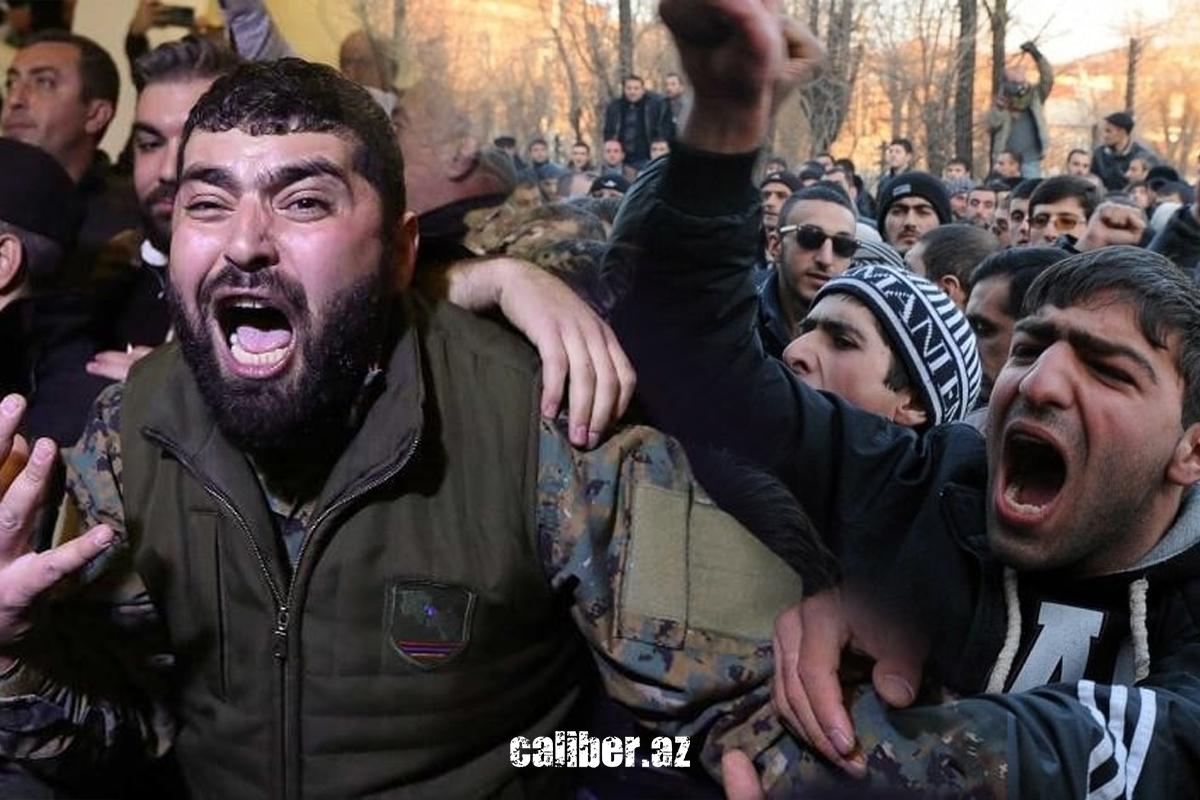Is Georgia bracing for post-election unrest? Armenian intelligence on standby
Late October and November in Georgia might become "unseasonably heated." Both the U.S. and the EU have made it clear that they are unwilling to respect Georgia's national sovereignty and are openly preparing for an unconstitutional coup. The groundwork for this coup is being laid in advance, out in the open. In this context, the West—particularly France—has a "trusted ally" in Salome Zourabichvili, Georgia's president, who previously held high-level positions in France's Ministry of Foreign Affairs. This connection could help the West "legitimize a power-sharing arrangement" in Georgia, should the ruling Georgian Dream party win the elections.
A similar tactic was attempted by the West in Belarus in 2020, when Alexander Lukashenko, who won 80% of the vote in the presidential election, was declared a "usurper" by the EU, while Sviatlana Tsikhanouskaya, who garnered just 10%, was recognized as the "legitimate president." Given this precedent, it's highly likely that the EU may refuse to recognize the results of Georgia's parliamentary elections on October 26, 2024. Even if the latest GORBI poll proves accurate, showing that 59.5% of respondents support the ruling Georgian Dream party, with only two opposition parties passing the 5% threshold, the EU may still question the outcome.
Unlike in Belarus, the West—especially France—already has its "own" sitting president in Georgia, albeit one with limited constitutional powers: Salome Zourabichvili. She has already begun forming a "technical" or "shadow government" even before the elections. Compared to Zourabichvili, Tsikhanouskaya was merely a "schoolgirl." Zourabichvili, during her time in French diplomatic service, gained experience in orchestrating regime changes in former French colonies to serve Paris’s interests. From 1989 to 1992, Zourabichvili was the second secretary of the French embassy in Chad, and it was during this period, amidst a raging civil war, that Chad’s president Hissène Habré, who had fallen out of favour with France, was overthrown and replaced by Idriss Déby, who was more compliant with Paris’s agenda.

The forces mobilized by the West in the "battle for Georgia" suggest that neutralizing Zourabichvili and her "shadow government" will be no easy task, even if the Georgian Dream party wins decisively in the elections. Almost all opposition forces are already priming the Georgian public to expect so-called "vote rigging and fraud" during the election process. The possibility of a Belarus-style refusal to recognize the election results was directly hinted at by none other than the EU ambassador to Georgia, Paweł Herczyński.
"However, in case they [elections] are not held up to the best international standards, and this is what will be the opinion of international observers, and local observers, we will be waiting for the assessment from OSCE/ODIHR. Then, of course, we will be ready to respond to any developments, including the worst-case scenario of electoral violence and the possibility of rigging of the elections. This is what we have experienced in the case of Belarus, and I sincerely hope that we will never experience this in the case of Georgia," stated Paweł Herczyński. In essence, he directly hinted that Brussels does not plan to recognize a victory by the Georgian Dream party in the parliamentary elections on October 26, 2024.
The likelihood of such a scenario is further underscored by the pre-election activities of the opposition, which seems more focused on post-election "protests against fraud" than on the elections themselves. The opposition-aligned monitoring mission "My Vote" has accused the current Georgian government of using administrative resources to influence the election. According to "My Vote" representatives, public sector employees are being asked to collect personal data on themselves and their family members in favour of the Georgian Dream party, which will then be passed on to the ruling party. In this way, the opposition is already laying the groundwork to declare the elections "invalid" and to initiate protests.
The US Embassy in Georgia has also directly warned its citizens about potential post-election protests: "We remind US citizens to be cautious and vigilant due to the possibility of large gatherings in Georgia in connection with the parliamentary elections to be held on October 26," stated the embassy's announcement.

However, simply mobilizing protesters may not be enough to wrest power from the Georgian Dream party, which consistently garners the highest percentage of votes in polls. It is highly likely that the opposition is preparing for clashes following the elections. If external forces manage to establish a dual power structure and a "shadow government" in Georgia after the parliamentary elections, it is probable that "shadow" security forces will emerge as well. In simpler terms, armed groups could surface, posing a risk of destabilizing the situation in the country.
Georgian Prime Minister Irakli Kobakhidze has already warned that the establishment of a "technical government," which President Salome Zourabichvili intends to organize with opposition party leaders, is a direct path to destabilization and civil war. "Our approval rating is around 60%. In this context, talking about an opposition technical government is absurd. The elections will proceed normally. In November or early December, the first session of Parliament will take place, and a legitimate government will be formed to ensure the country’s development, not some so-called technical government. The proposed plan, which lacks a mandate for implementation, would effectively paralyze the country for a year and, furthermore, would drag the country into war and destabilization," the prime minister stated.
To destabilize the post-election situation in Georgia, provocateurs will be necessary—those who, without any hesitation, would resort to violence against other Georgian citizens in the event of escalating tensions. Unfortunately, the West and pro-Western opposition have the "cadres" for this. This includes numerous ethnic Armenians and individuals with dual Armenian and Georgian citizenship, primarily from the Samtskhe-Javakheti region. Among them are those who permanently reside in the Republic of Armenia, including remaining militants from Karabakh, who could be deployed to Georgia by the time the elections take place.

Interestingly, a similar scenario has already been discussed at NATO headquarters in Brussels, where Armenian Security Council Secretary Armen Grigoryan met with representatives of the Alliance's Military Committee. As previously reported by Caliber.Az, during the meeting in Brussels, it was announced that Armenian intelligence agencies were preparing "active measures" using an agent network established among ethnic Armenians residing in Georgia. To this end, relevant preparatory work is being conducted in Armenia with the recruited contingent, which includes elements of urban warfare. It is anticipated that, in the coming days, the most experienced specialists from the Balkans, who have actively worked against the Serbian government, will join this process.
The role of such provocateurs in escalating the conflict in Georgia should not be underestimated. Analysts are directly comparing the current situation in Georgia to the events in Ukraine during 2013-2014, discussing the likelihood of a "Maidan" scenario and the use of "sacred victims" to transform protests into an armed confrontation.
In fact, even in Ukraine, which is quite distant from the South Caucasus, the first "sacred victim" during the Kyiv "Euromaidan" (which advocated for Ukraine's "European choice") in early 2014 was Serhiy Nihoyan, possibly killed by his own side. This event marked the beginning of a bloody spiral in Ukraine, ultimately leading to a change of government and the war in Donbas. Throughout these events, representatives of the "ancient nation" were often prominent on both sides, sometimes even playing leading roles.
It's also worth recalling that in the summer of 2019, during the so-called "Gavrilov’s Night," when the opposition attempted to storm the Parliament building after Russian deputy Gavrilov sat in the speaker's chair, citizens of Armenia were among those arrested. This occurred even before the 44-day war, at a time when the "discontent" towards Russia among pro-Western Armenian nationalists was not as extreme as it is today.
Now, both Russia and the Georgian government—labelled as "pro-Russian"—have become targets of hatred among many Armenian nationalists, including those holding Georgian passports. The previous "love and hope" for Russia has been replaced by "hope for the West," a sentiment echoed by many Armenian separatists from the Javakheti region.

Armenian nationalists, who have repeatedly made their people a "bargaining chip" in geopolitical games, aim to turn Georgia into a "battlefield" between the West and Russia. The "pro-Russian" Armenian lobby hopes that, taking advantage of the ongoing destabilization, the Russian army will once again invade Georgia, creating a "military corridor" to Armenia and reinstating the revanchists from the Karabakh clan in power.
Conversely, in Yerevan, Georgia is viewed as a transit territory for Western military support (including from France) in the event of a new revanchist war. This would be most effectively achieved if a pro-Western opposition came to power in Tbilisi, allowing Georgia to open a "second front" against Russia. Both scenarios could have catastrophic consequences for Georgian statehood.
Stability and peace in Georgia are undoubtedly in the interests of Türkiye and Azerbaijan. Central Asian states and China also have a vested interest in Georgia's stability, as it is part of the rapidly developing Middle Corridor. Destabilization in Georgia could have extremely negative consequences not only for the South Caucasus region but for all of Eurasia, especially in light of the ongoing Russian-Ukrainian war and the escalating conflict in the Middle East.
Vladimir Tskhvediani, Georgia, for Caliber.Az








